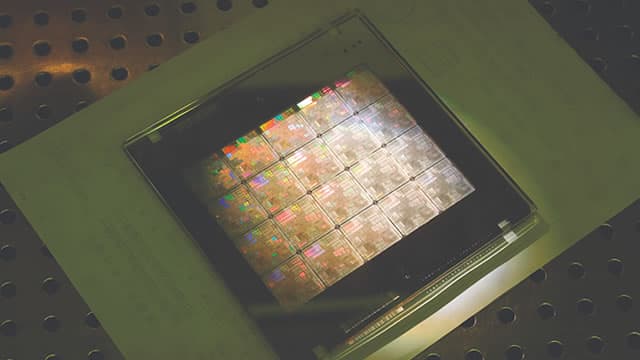1 Artificial Intelligence (AI) Stock to Buy Before It Soars to $10 Trillion, According to a Wall Street Analyst (Hint: Not Apple)

Summary
Beth Kindig, a leading tech analyst, has a proven track record, accurately predicting Nvidia would surpass Apple's market value. She now forecasts another AI stock could reach $10 trillion, emphasizing the immense potential of the AI revolution. This highlights the importance of identifying foundational AI enablers with scalable, defensible, and innovative business models. Investors should look beyond traditional tech giants to capitalize on the next wave of market leaders emerging from the pure-play AI sector, conducting thorough due diligence on companies poised to become indispensable to the global AI ecosystem.
1 Artificial Intelligence (AI) Stock to Buy Before It Soars to $10 Trillion, According to a Wall Street Analyst (Hint: Not Apple)
Beth Kindig, a highly respected lead technology analyst at the I/O Fund, has an impressive and well-documented track record when it comes to forecasting the trajectory of chipmaker Nvidia (NVDA). Her insights have consistently proven prescient, particularly concerning the burgeoning artificial intelligence (AI) sector. As early as 2021, Kindig made a bold and accurate prediction: she stated that Nvidia would surpass Apple's market capitalization within five years. This forecast, initially met with skepticism by some, has largely materialized, underscoring her deep understanding of technological shifts and market dynamics.
Kindig's analytical prowess extends beyond mere observation; she delves into the fundamental drivers of technological growth. Her current focus on the AI landscape suggests another significant opportunity for investors. While the article title hints at a stock other than Apple, it's crucial to understand the underlying rationale behind Kindig's predictions. Her methodology often involves identifying companies that are not just participating in a trend, but are foundational to its expansion, much like Nvidia's role in AI hardware.
The AI Revolution and Market Potential
The artificial intelligence revolution is still in its nascent stages, yet its potential to reshape industries and economies is undeniable. From generative AI applications to advanced robotics and autonomous systems, AI is poised to drive unprecedented levels of productivity and innovation. This technological paradigm shift is creating immense opportunities for companies that provide the essential infrastructure, software, and services. The market for AI-related technologies is projected to grow exponentially, with some analysts predicting it could reach trillions of dollars in the coming decade.
Kindig's $10 trillion valuation target for a single AI stock, while ambitious, reflects the scale of this potential. Such a valuation would place the company among the most valuable in the world, surpassing even the current titans of the tech industry. This isn't merely about a company selling AI products; it's about a company becoming an indispensable backbone of the global AI ecosystem.
Identifying the Next AI Giant
While the specific company Kindig is referring to is not explicitly named in the original snippet, her past success with Nvidia provides clues. Nvidia's dominance in AI chips stems from its early investment in GPU technology, which proved perfectly suited for parallel processing required by AI workloads. The next AI giant, according to Kindig's framework, would likely possess a similar foundational advantage in a critical aspect of AI development or deployment. This could be in specialized AI hardware beyond GPUs, advanced AI software platforms, critical data infrastructure, or perhaps a company that is uniquely positioned to monetize AI at scale across diverse industries.
Investors should consider companies that are:
- Enablers of AI: Providing the core infrastructure, tools, or platforms that other companies use to build and deploy AI.
- Scalable: Possessing a business model that can grow exponentially with the adoption of AI.
- Defensible: Having a strong competitive moat, such as proprietary technology, network effects, or significant intellectual property.
- Innovators: Continuously pushing the boundaries of AI technology and applications.
Investment Implications and Market Context
For investors, Kindig's insights serve as a powerful signal to look beyond the obvious choices and delve deeper into the AI supply chain. The market is increasingly recognizing the long-term implications of AI, leading to significant capital flows into the sector. However, not all AI-related investments will yield similar returns. Identifying the true foundational players, as Kindig has done with Nvidia, is key.
This analysis suggests a shift in market leadership could be underway, moving from traditional tech giants to companies that are at the forefront of AI innovation. While Apple remains a formidable company, its primary growth drivers are consumer electronics and services. The next wave of trillion-dollar companies may emerge from the pure-play AI sector or from companies that have successfully pivoted to become AI-centric.
Investors should conduct thorough due diligence, focusing on a company's technological edge, market share in critical AI segments, and long-term growth strategy. Diversifying within the AI sector, perhaps by investing in both hardware and software providers, could also mitigate risk while capturing upside potential. Kindig's continued focus on identifying these pivotal players offers valuable guidance for those looking to capitalize on the AI revolution.
Conclusion
Beth Kindig's track record with Nvidia underscores her ability to spot transformative trends and identify the companies best positioned to capitalize on them. Her current focus on an AI stock with $10 trillion potential signals a profound belief in the sector's future and the emergence of new market leaders. For investors, this is a call to action: research the foundational AI companies, understand their competitive advantages, and consider their long-term growth prospects beyond the immediate hype. The next decade could see AI redefine market valuations, and identifying the key players early will be crucial for significant returns.